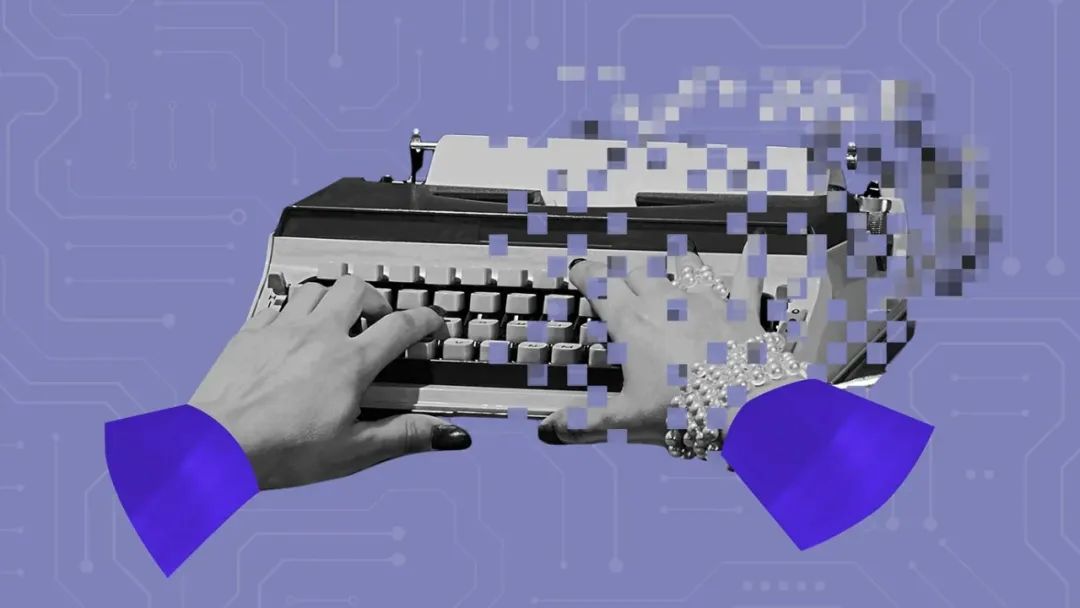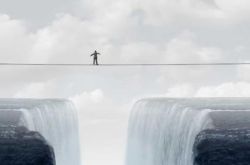From Unemployment to Rebirth: The Secret Behind AI Replacing Human Jobs
![]() 06/25 2024
06/25 2024
![]() 753
753
If you're concerned about AI affecting your job, then perhaps the world of copywriters can give you a glimpse into the future.
01. Word Workers in the AI Era
Writer Benjamin Miller (pseudonym) flourished in early 2023. He led a team of over 60 writers and editors, writing blogs and articles for a tech company to promote various data products ranging from real estate to second-hand cars.
Miller said, "This is a very attractive job. I have the opportunity to unleash my creativity and collaborate with experts in various fields."
But one day, Miller's manager informed him of a new project.
"They want to use AI to reduce costs."
A month later, the company introduced an automated system. Miller's manager would input article titles into an online form, and an AI model would generate an outline based on the title. Miller would then receive a notification on his computer.
Articles that originally required the team to conceptualize on their own now became writing around the AI-generated outlines, and Miller only needed to make final revisions before publication.
However, after Miller had adapted for just a few months, he received news of "advanced automation."
In the future, ChatGPT would be fully responsible for writing these articles, and most members of his team were laid off. The few remaining individuals were tasked with even less creative duties: editing ChatGPT's substandard text to make it read more like human-written content.
By 2024, the company had laid off the rest of Miller's team, leaving him alone.
Miller said, "Suddenly, I took on everyone's work. Every day, I had to open AI-written documents, correct the robot's 'formulaic' errors, and complete work that used to require dozens of people."
"Mainly it was deleting redundant parts, making the text look less awkward, and removing strange formal or overly enthusiastic language. Compared to regular copywriters, I actually had to do more editing work, but it was always the same type of editing. The real problem is that this job is too repetitive and boring—gradually, I started to feel like a robot."
Miller's experience reflects a broader transformation.

Across many industries, AI is taking on jobs that were once uniquely human. The cost of AI is often lower than humans, but early adopters quickly discovered that AI cannot always reach the same level.
Now, employees like Miller are required to collaborate with the AI that "stole their jobs," giving algorithms a touch of humanity to make AI seem more human-like.
If AI's efficiency improves significantly, this will be a temporary solution. If not, Miller's story could become a preview for other industries.
Will AI take your job? It's hard to say. We are at a troubling crossroads, with some experts warning that super-intelligent robots will soon replace most human jobs, while others argue that this technology may never reach that point.
More voices argue that we are moving towards a future where AI and humans cooperate rather than compete.
But on a smaller scale, some workers are already facing distressing consequences. If there's one thing that large language models driven by generative AI can do, it's string words and paragraphs together, pushing some writers to the forefront of the crisis.
The fear of losing jobs to AI-driven writing tools was also one of the main reasons for last year's writers' strike in the US.
With the advent of AI tools capable of generating images, audio, and video from scratch, other creative industries also face similar concerns about the future.
Copywriters who write marketing materials and other content for businesses have already felt this impact.
In some corners of the copywriting industry, AI can be a blessing—it can be a useful tool to speed up work progress and enhance creativity. But other copywriters, especially those early in their careers, say that AI makes it harder for them to find jobs.
But some people have also noticed that a new low paying job is emerging: fixing the poor writing of AI robots.
02. Dual sided empowerment of AI
Catrina Cowart is a copywriter from Lexington, Kentucky, USA, who has worked as an AI text editor.
Cowart said, "We are adding 'human touch', but this often requires in-depth developmental editing of an article. We always have to remove fancy words such as' therefore 'and' however ', which are not suitable for casual writing."
"In addition, it is necessary to conduct a factual verification of the entire content, as artificial intelligence can only fabricate and take a long time."
Cowart added, "The humanized processing of artificial intelligence often takes longer than writing an article from scratch, but the rewards are lower."
"On job search platforms, the maximum compensation per word is usually 10 cents - but this is for writing and writing, while revising AI copy is considered editorial work, so it usually only earns 1 to 5 cents per word. This is a tedious and tedious job with almost no compensation."
There are similar examples in other industries where low paying humans always silently support the operation of machines, from helping with automatic ordering systems to annotating images for training AI vision systems.
However, for writers, whether the arrival of artificial intelligence is a good thing or a bad thing depends on how people treat it and their level of career development.
Some writers say that using these tools in the creative process can even enhance their works.
For example, the American Writers and Artists Institute (AWAI) is an organization that provides training and resources for freelance writers, offering various artificial intelligence courses to its members.
Rebecca Matter, the chairman of AWAI, said, "The artificial intelligence course is currently the most popular course at the institution. For people who work as copywriters, the risk is not that artificial intelligence takes away their jobs, but that they must adapt. This may feel uncomfortable, but I believe it is a huge opportunity."
Matter also stated that for most writers she knows, the transition to the world of artificial intelligence has been smooth. In fact, artificial intelligence has become an inherent part of the copywriting process, and many writers now add their personal "AI policies" on their professional websites to explain how they use this technology.
Rebecca Dugas, a copywriter with nine years of experience, said that artificial intelligence is a "godsend opportunity" that allows her to complete equally high-quality work in a very short amount of time.
"As long as the client is willing, I will use artificial intelligence. Whether it's brainstorming, market research, or rewriting paragraphs when I have a headache, artificial intelligence is my rare co creative partner."
With the development of artificial intelligence, Dugas predicts that some companies will turn to ChatGPT and other tools to meet their writing needs, rather than hiring manual labor.
But Dugas also added, "But I think we should realize that if users don't understand copywriting, of course, they can't judge the effects of artificial intelligence."
"Talented and qualified writers will always have high paying jobs, but copywriters at the lower end of their careers may not be as lucky. Nowadays, many people in this position find themselves in a series of contradictions."
03. Collaborative development
A large amount of copywriting work comes from webmasters who hope to increase website traffic through Google. However, Google issued a series of major announcements last year, which aimed to remove "useless" content from search results. This has raised concerns that the technology giant may punish websites that host AI generated content.
But Google insists that if the content quality is high, the content written by artificial intelligence is not a problem, but these guarantees have not dispelled people's doubts.
Therefore, in some fields of copywriting, using artificial intelligence detection software to detect text has become a common practice. In the past year, a large number of writers have even reported losing their jobs due to false alarms detected by AI.
According to Cowart, many freelance writing platforms that have installed artificial intelligence detection software are also hiring people to edit content produced by chatbots.
This means that in some corners of copywriting, almost all work revolves around avoiding AI traces.
Cowart said, "They are selling artificial intelligence content and paying you to fix it. At the same time, they also send you an email telling you how to write like a human, so that you don't trigger their artificial intelligence detector. This is too insulting."
"Even worse, these detectors are regularly updated to keep up with the latest changes in AI chatbot companies, which means that the rules for writing content that may be marked as AI are also constantly changing."
Miller's "AI revision" work came to a sudden end. On April 5, 2024, a major earthquake occurred in New York, and he was fired on the same day.
Fortunately, not long after, Miller found a new, ironic job.
He found a job at a technology company called "Undetectable AI", which developed software that makes artificial intelligence writing more difficult to recognize. In other words, Miller is helping a company that uses artificial intelligence to do the work he was forced to do after being taken away from his job by artificial intelligence.
Bars Juhasz, Chief Technology Officer of Undetectable AI, stated that tools like those produced by his company will definitely have some negative impacts on the labor market, but he is optimistic about future work.
Juhasz added, "I think we will see many job positions being replaced, and freelancers will be the hardest hit. I sympathize with them."
"However, those who spend money to humanize artificial intelligence are excellent opportunists. Of course, this is not a good job, but as we redefine productivity, they have effectively found a new position. People who can learn to interact with technology will have great potential."






